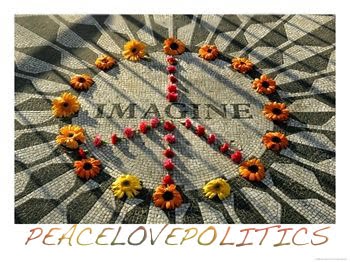When you hear the name Al Gore, you are more inclined to think of a man making power point presentations of polar bears on melting ice caps then of a politician sitting in legislative meetings. After two Vice Presidential terms and his own closely contested, historically controversial Presidential race, one could argue that Gore will be best remembered for bringing the issue of climate change to the people of America. His documentary film, An Inconvenient Truth, made the term “global warming” a household phrase. Though some still dispute the scientific legitimacy of climate change and the manner in which Gore presented the concept in his film, no one can argue that Gore ushered in an era of environmentalism by initiating the most serious environmental policy debate to date. As with any political issue, Gore’s social criticism of America’s lack of environmental concern roused strong support and strong opposition, but more importantly it initiated conversation...the kind of conversation most easily catalyzed by an effective public intellectual.
As Jean Bethke Elshtain and Stephen Mack both point out in their commentaries on the public intellectual, its purpose above all else is criticism. Gore’s environmental critique of society in An Inconvenient Truth painted a bleak picture in which figuratively no one’s hands were left unstained with the blood of careless actions.
Future generations may well have occasion to ask themselves, "What were our parents thinking? Why didn't they wake up when they had a chance?" We have to hear that question from them, now….And that is what is at stake, our ability to live on planet Earth, to have a future as a civilization. I believe this is a moral issue, it is your time to seize this issue, it is our time to rise again to secure our future.
This passionate call to arms may not have ignited a war or caused one to end, but it did start a movement that was arguably significant and powerful enough to have altered our course in history. Three years later, Gore has yet to give up. In his own blog, Al’s Journal, he posts almost daily with continued hopes of getting out his message of climate change to anyone who’s willing to hear it, and offering those who are listening advice on how to best affect the environmental political agenda. In a recent post, he even acknowledges the fact that “building a grass roots movement is difficult,” but also assures his readers that, “Our movement has been building towards this moment. Together we will not fail.”
To make the supposition that the “public intellectual” as a collective group is in its decline, in my mind also suggests that we as a society no longer value intelligent conversation. There are no doubt a billion negations to both of those assertions happening right now as you read this statement. The blogosphere as well as other new forms of digital media have opened up the floodgates for academics and minimum-wage earners alike to become a member of the public intellectual with just the click of a button. As one intellectual put it, “Our notions of the public intellectual need to focus less on who or what a public intellectual is—and by extension, the qualifications for getting and keeping the title. Instead, we need to be more concerned with the work public intellectuals must do, irrespective of who happens to be doing it.” (Stephen Mack, The “Decline” of Public Intellectuals?) In many ways the Internet is pushing this statement closer to a reality each day. If a popular blog begins to stir up political and social debate, does it matter if the author is Al Gore or a college student? In my book, if either of the two can start intelligent debate within the public, then either can be an effectual public intellectual.


The existence of intellectualism is not always evident in the public realm. Some of the most intellectual societies have kept it in private areas – French academic circles. However, I think you made an excellent argument about how new media has ushered in the era of the common public intellectual, the well read minimum wage earner or the restless college student. Such a drastic shift in the range of Public Intellectuals has strengthen democracy because more individuals can voice their opinions. The market place of ideas, where multiple opinions compete for the spotlight, demands new content or opinions. The more ideas competing, the better decisions made. Some of the greatest innovations in science, politics, and communication also have come from the mind's of minimum wage earners; for example, Albert Einstein developed The theory of Relativity while working at a patent office.
ReplyDeleteChoosing Al Gore as your public intellectual brought up an interesting concept--the public intellectual vs. the famous public intellectual. Al Gore's ability to make a feature length documentary put him into the spotlight as an activist, critic and, therefore, public intellectual. The American public is more inclined to listen to someone with a "megaphone" than to someone who has little clout in popular culture.
ReplyDeleteThe concept of the public intellectual vs. the famous public intellectual, as commented by colleenjk, is indeed interesting. I feel the same concept can be applied to Barack Obama. While he is a public intellectual, with his presidency and presidential campaign (which became very immersed in pop culture), some may say Obama is now considered a famous public intellectual, like Al Gore. The question is, does being famous make you more of a public intellectual or does it take away from your credibility as a public intellectual?
ReplyDelete